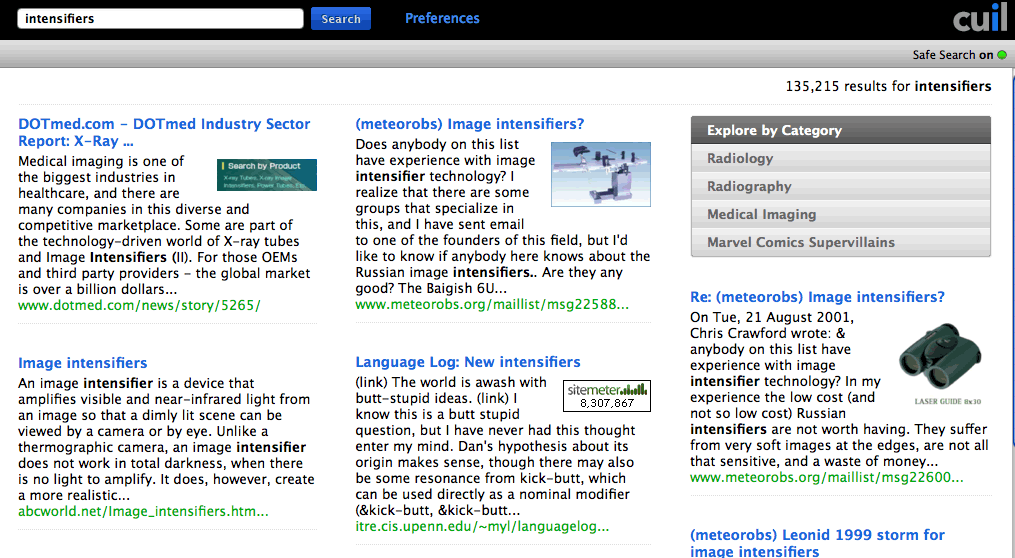Clear as glass
The comments on my posting "Commercial categories" struck me as useful, and also fascinating. They illustrated my observation that though technical, semi-technical, and everyday uses of expressions can be distinguished, these uses aren't fixed in stone, but can vary from person to person and time to time; and that both what's included in a category and also the label that's used for that category can vary in the same way.
Now comes a technical usage that was new to me, in a NYT Science Times article on Tuesday, "Anything But Clear", by Kenneth Chang, on glass. Two small points (none of them new): a technical usage that's an extension of everyday usage; and a mass-to-count conversion, taking a noun denoting a substance X to a noun denoting a type of X.
Read the rest of this entry »




